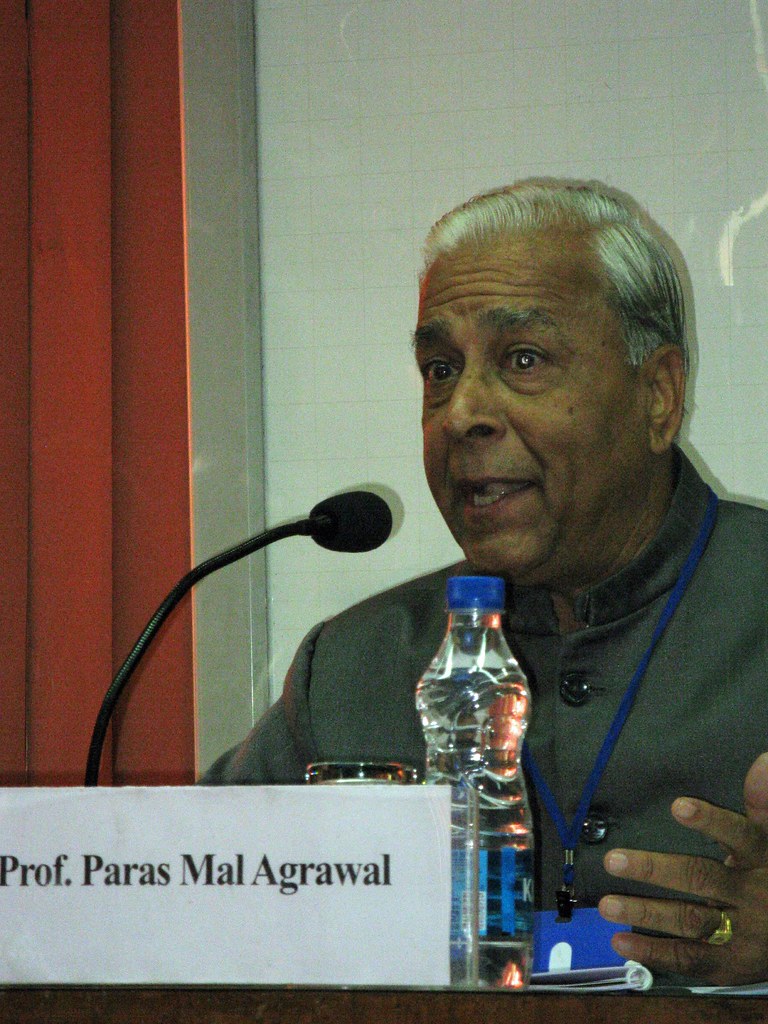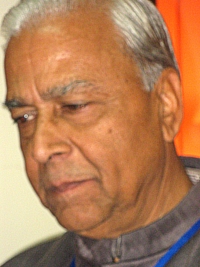ISJS
Series of 3 seminars on
Integrating Modern Science and Spirituality for Social Wellness:
A Challenge of 21st Century
Seminar "A"
Consciousness and Knowledge: Scientific and Spiritual Perspectives
Delhi
Sundday, December 12, 2010
Abstract
Objectivity and Subjectivity in Science and Spirituality
Science is considered objective and objective statements are said to be facts that can be verified by third parties, while spirituality is regarded as subjective. Objectivity has presently the connotation of being real, reliable, and fair. Subjectivity is equated with being arbitrary, imaginary, and influenced by personal feelings. According to the Indian tradition there is no intrinsic reason for objective knowledge to be more reliable than subjective knowledge, rather the contrary. Objective knowledge is, after all, indirect, as it requires mediation through our clearly imperfect physical sense organs, while subjective knowledge arises, according to this worldview, directly out of consciousness itself.
Consciousness reveals its own self as well as other objects of the world. It is both self consciousness and consciousness of and about something. However present day scientists emphasis only the objective reality and deny the subjective reality of consciousness. Although Max Velmans, A. Damasio and John Searle state that physical reductionism that proposes the conscious experience is identical with neural activity is not acceptable, that sorrow, joy etc. are “entirely private, first-person phenomenon,” and that conscious subjective states are “ontologically irreducible,” they yet think that conscious experience “follow deterministic physical laws,” that they are “closely correlated with the functions of the brain”, or that conscious states are “causally reducible to neurobiological processes” and that they are realized in the brain and have “absolutely no life of their own, independent of the neurobiology [i.e. brain states]”.
But Thomas Nagel and others refer to “the subjective character of experience” as an “irreducible future of reality” in unmistakable terms. The Cartesian disjunctive dualism now stands discredited and it is now increasingly realized that in its objective aspect, consciousness is about something [what is it about (information)] and, in its subjective aspect, it is an experience of sensing something (what is it like) (subjective experience). The correlation between the brain states and consciousness is an asymmetrical relationship, a one-way determination from matter to consciousness. The interaction between consciousness and matter is, in fact, a two way process.
Just as the changes or modifications in neuro-physiological processes or brain states (i.e. physical (dravya) karma) act as the indirect, extrinsic supportive factor (nimitta) or auxiliary cause (nimitta karana) of changes or modifications in the psychic or conscious states of jiva, so also changes or modifications in psychic states act as the indirect, extrinsic supportive factor (nimitta) or auxiliary cause (nimitta karana) of changes or modifications in the neuro-physiological processes or brain states (Samayasara 80-81), i.e. the interaction between consciousness and matter is a two-way-process. This approach does not violate either the principle of classic physics that “the physical realm is causally closed in the sense that nothing non-physical can enter into it and act as a cause,” and that “each physical event lay in an unbroken series of antecedent physical events,” or William James principles of psychology that “psychological events never take place in a vacuum without some reference to the preceding events,” because the conscious mental states and neuro-physiological processes remain the direct or substantive cause (upadana karana) of changes or modifications within their own respective spheres. Thus, this provides “the correct approach to the mind-body problem” which Thomas Nagel has been aspiring for viz., that it should preserve the mental-physical distinction, must be “essentially biological, not functional or computational,” and “necessarily both subjectively mental from the inside and objectively physical from the outside - just as we are.
Photos

 Prof. Dr. Paras Mal Agrawal
Prof. Dr. Paras Mal Agrawal